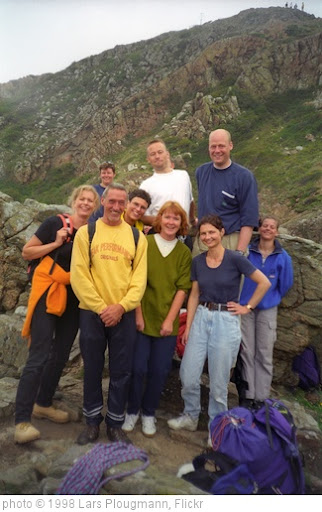A Different Way of Learning, Adventure Based Learning, George Robotham
Is your learning becoming routine and boring? You may like to try adventure based learning. Having been associated for many years with a program that uses adventure based learning in life-style, leadership and team building issues I can see application for this style of learning in many fields.
Adventure based learning works in many ways-
Adventure Based Learning Process
|
The Individual |
↓
Experience a State of
|
Disequilibrium |
↓
By Being Placed In A
|
Novel Setting |
↓
And
|
A Cooperative Environment |
↓
↓
While Being Presented With
|
Unique Problem Solving Situations |
↓
That Lead To
|
Feelings of Accomplishment |
↓
Which Are Augmented By
|
Processing the Experience |
↓
Which Promotes
|
Generalisation and Transfer |
↓
To Future Endeavours
THE FIVE PRINCIPLES
PARTICIPATION
Participation asks that the person be present at each activity and participate at whatever level he/she is comfortable. Participation encourages people to be with the group to work together to achieve both individual and group goals.
RESPECT
Respect involves respect for others, respect for yourself and respect for the environment. We ask for a commitment to work towards changing behavior that is not in some way putting down yourself or others.
SAFETY
Safety – Participants need to know that they will be safe. Safety needs to be both emotional and physical. Putting safety up as a principle at the start of the program says that we care about what happens to you and we ask for a commitment to take responsibility for your own safety and to that of other members of the group. There also needs to be a perception of safety by the group so we invite challenges to the leader for more information if there are any concerns.
LEGAL
Legal – A commitment to work within the framework of the law.
Source-A course in program development & facilitation, The Outlook, Boonah , Qld. Dept. of Families, Youth & Community Care
 Adventure based learning can take many forms – Problem solving in the bush, map reading with a treasure hunt, canoeing is a low stress approach, camping overnight, work environment simulations, puzzles, storey telling, observation of the environment various team activities etc. The learning, problem solving and relationship building that is experienced around the campfire at night should not be underestimated. Adventure based learning has been given a bad name by a small number of gung ho, charge through the bush trainers. Proper adventure based learning will have a very high emphasis on participant safety. It does not need to have high levels of physical challenge. Some programs have the focus on the outdoor experience when the focus should be on the learning.
Adventure based learning can take many forms – Problem solving in the bush, map reading with a treasure hunt, canoeing is a low stress approach, camping overnight, work environment simulations, puzzles, storey telling, observation of the environment various team activities etc. The learning, problem solving and relationship building that is experienced around the campfire at night should not be underestimated. Adventure based learning has been given a bad name by a small number of gung ho, charge through the bush trainers. Proper adventure based learning will have a very high emphasis on participant safety. It does not need to have high levels of physical challenge. Some programs have the focus on the outdoor experience when the focus should be on the learning.
Adventure based learning is different, most people enjoy it, does not have to be physically challenging, can be a great relationship builder and, with thought, can be applied to a wide variety of learning. One word of caution is that if you are camping overnight you need to let people they will have to rough it. For the people who are phased by the lack of their own bed, basic meals and the possibility of no showers or toilets you are better off not taking them.



Do you have any thoughts? Please share them below